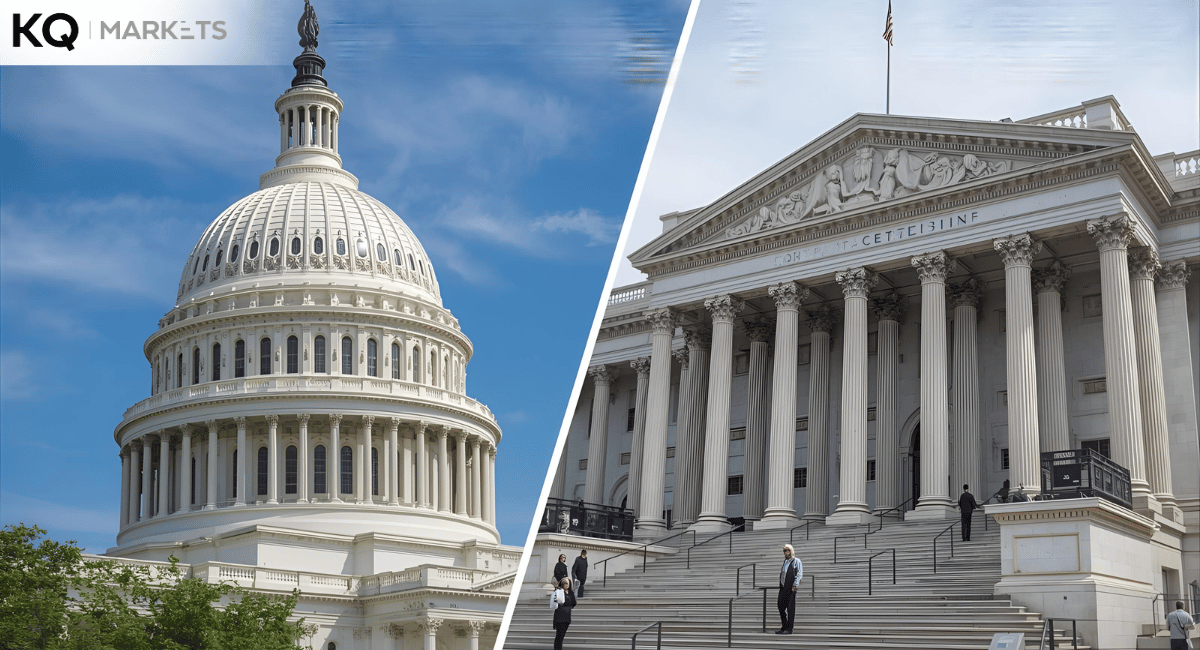Traders raised BoE interest rates cut stakes on Thursday as they anticipate an aggressive borrowing cost cut from the US Federal Reserve. They predicted a 35% probability of a 25 basis point rate cut, marking a 10% increase.
BoE Interest Rate Cut Overview
The Bank of England's policy faces pressure due to monetary policy shifts. The previous BoE monetary policy decision held interest rates at 5% from 5.25% in August. In general, traders predicted a 0.25 basis point rate cut in September, a significant change in the impact of interest rate reductions.
The BoE hopes to curb economic stagnation and stimulate growth resulting amid the sluggish UK economic growth outlook. Yet, investors remain concerned about inflation despite most BoE interest rate cut bets suggesting lower credit costs.
BoE Interest Rate Cut Driving Factors
The Bank of England policy change stems from numerous factors. Critical aspects include global monetary trends, inflation data, stagnant economic growth, and a strong pound. This section uncovers how these factors impact the BoE monetary policy.
- Stronger Pound
The rising sterling pound creates a complex balance for the British central bank. In general, the sterling pound traded against the US dollar at its highest level since 2022. A stronger currency reduces exports, raising concern over the impact of interest rate reduction. Thus, the BoE seeks to maintain a stable economic balance.
- Economic Growth
The Bank of England implemented several economic stimulus measures through interest rate cuts to boost the UK's economic growth outlook. Hence, the BoE cut interest rates to reduce borrowing costs for consumers and businesses. This strategy aligns with the BoE monetary policy objective of supporting spending and investment.
- Inflation Data
The Bank of England faces rising services inflation despite stable headline inflation. Thus, some members remain wary about borrowing cost cuts due to persistent inflation. Others believe the ongoing interest rate cuts target a long-term inflation decline. Overall, the Bank of England balances economic growth with inflation risks.
- Global Monetary Trends
The Bank of England will likely cut interest rates amid the US Federal Reserve cutting interest rates by 0.5 basis points. In simple terms, the BoE monetary policy decision ensures that the UK economy remains competitive. This strategy involves aligning the UK central bank's decision with that of other EU central banks.
BoE Interest Rate Cut Aftermath
The BoE interest rates cut will cause rampant economic and capital market impacts. Yet, analysts and investors strongly believe the Bank of England will initiate a rate cut. This sentiment influences trading across markets.
- Financial Market
Rate cuts will likely weaken the sterling pound. Thus, this decision might benefit exporters due to a weaker currency. Experts say the results would be rising market volatility as traders adjust their portfolios due to the economic expectations.
- Inflation Control
The Bank of England's decision might ignite inflation concerns due to reduced rates, fueling rising prices. In the meantime, policymakers must balance inflation control for economic stability. This requires control over credit, loans, and mortgages.
Wrapping Up!
Global monetary trends, inflation data, stagnant economic growth, and a stronger sterling pound contribute to interest rate cuts. Therefore, they impact inflation controls and cause volatility in the financial market. The next BoE interest rates cut will determine the future of UK central bank decisions on monetary policies.
Trade Stocks with KQ Markets
Are you looking to invest in the stock markets and generate revenue from interest rates? KQ Markets offers a reliable platform for comparing markets and choosing the most profitable option. It provides practical tools and chats for you to buy and sell for profits in the capital markets.




